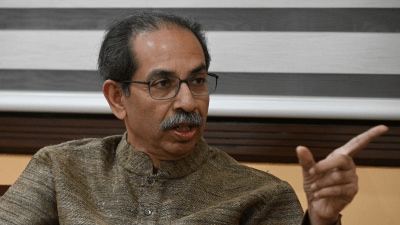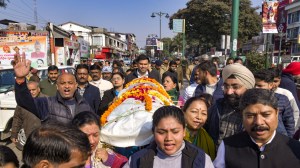The Bajrang Dal8217;s mockery
Protection of minorities is the hallmark of a civilised nation. According to Gandhiji the claim of a country to civilisation depends upon...

Protection of minorities is the hallmark of a civilised nation. According to Gandhiji the claim of a country to civilisation depends upon the treatment it extends to the minorities.
The repeated move by the Bajrang Dal to launch a second Quit India movement against Christian missionaries in the wake of recent Bible-burnings and the desecration of churches is bound to cause grave apprehensions among Christians, make minorities insecure, gravely tarnish our image and provide ammunition for Pakistan and the NGOs it sponsors to attack India in international fora. Unfortunately, it is not generally realised that the views and activities of the Bajrang Dal do not reflect those of the BJP government.
Christian missionaries over the years have rendered sterling service to the community. A fine example is the work of Mother Teresa and the Missionaries of Charity. The educational institutions run by them have proven their excellence.
One complaint vociferously voiced against the missionaries is about conversions.It is forgotten that Article 25 of our Constitution guarantees to every person, citizen and non-citizen alike, the fundamental right to 8220;profess, practise and propagate religion8221;.
The rights of minorities figured prominently in the Constituent Assembly8217;s deliberations. To justify the retention of propagate8217;, Pandit Lakshmi Kanta Maitra observed that 8220;the Indian Christian community happens to be the most inoffensive community in the whole of India8221;.
Krishnaswami Bharathi took the same stand and stated that 8220;so far as my experience goes, the Christian community have not transgressed their limits of legitimate propagation of religious views. It is for other communities to emulate them and propagate their own religions as well.8221;
K.M. Munshi, who took a leading part in the framing of the Constitution, also defended the right of Christians to convert others to their faith provided there is no fraud or coercion.
No religion is above the law. If a place of worship is constructed or used in violation oflaw, the law must take its course. If it is unauthorised, it is liable to be demolished.
In the context of a challenge to the acquisition of a mosque, the Supreme Court ruled that no place of worship has a special status higher than that of places of worship of other religions in secular India, making it immune to acquisition. The law of the land must be applied uniformly. It would be discriminatory to target the places of worship of a particular community.
Again, freedom of religion is not absolute and its exercise is subject to 8220;public order, morality and health8221;. There are rotten eggs in every community. If it is established by cogent evidence that some missionaries are indulging in unlawful activities, by all means proceed against them.
But the wholesale condemnation of missionaries is indefensible and betrays rabid fanaticism and hostility. Instances are not unknown where vested interests, angered by the activities of missionaries for the poor and the exploited have managed to foist false casesupon missionaries, including initiation of deportation proceedings, on the usual pretext of threat to national security.
In the landmark advisory opinion of Chief Justice S.R. Das in the Kerala Education Bill, reference is made to India8217;s tradition of tolerance epitomised in Rabindranath Tagore8217;s moving words: None shall be turned away/ From the shore of this vast sea of humanity/ That is India./ Day and night, the voice goes out from/ land to land,/ calling Hindus, Buddhists, Sikhs and Jains/ round thy throne/ and Parsees, Mussalmans and Christians.
The Bajrang Dal8217;s so-called second Quit India movement disfigures the historic 1942 movement. It makes a mockery of our lofty tradition and deserves unqualified condemnation.
- 01
- 02
- 03
- 04
- 05































